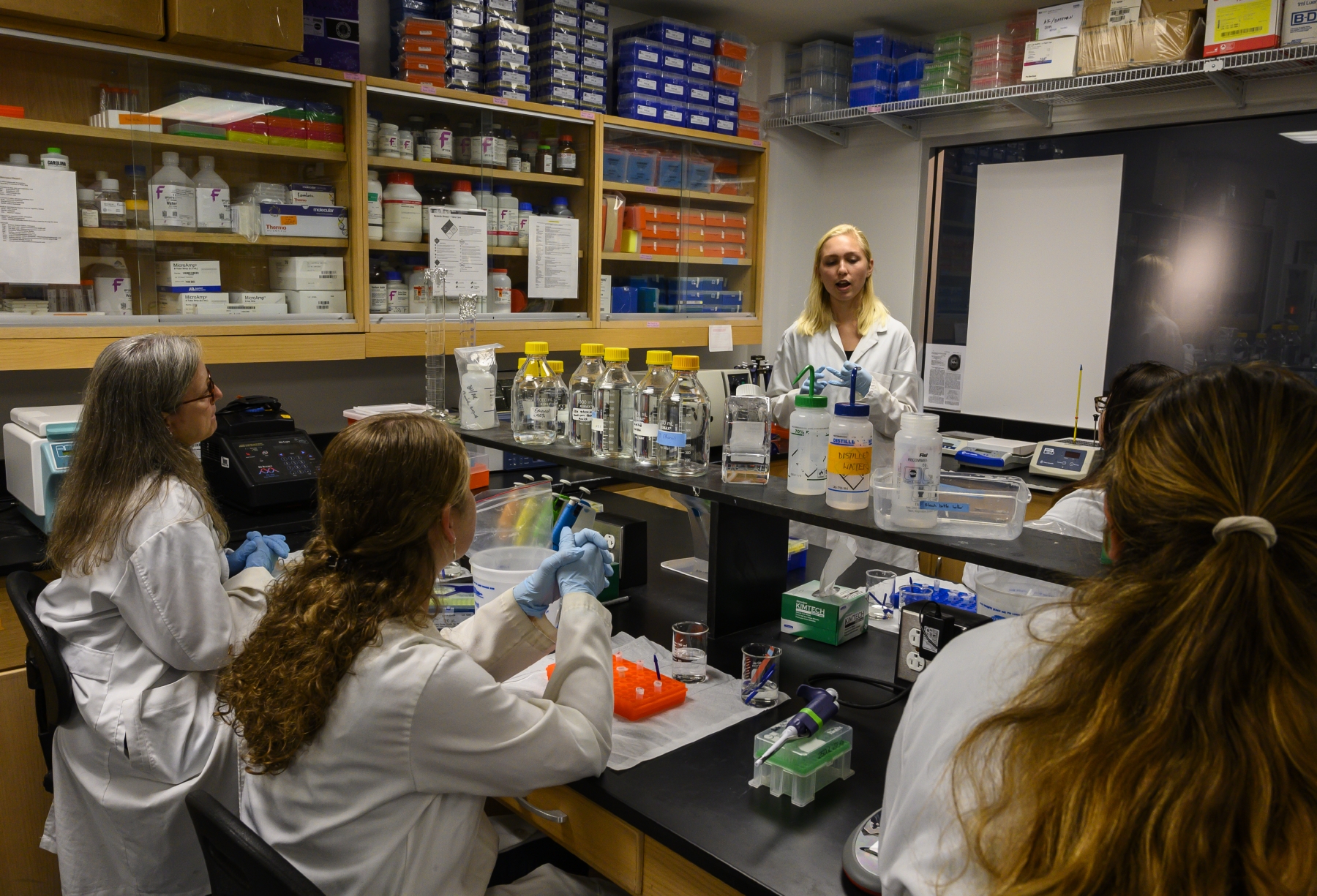Editor’s note: Participating teachers are from Alachua, Broward, Clay, Escambia, Hillsborough, Lee, Levy, Marion, Palm Beach and St. Lucie counties. Names and schools of selected teachers from each county are available upon request as well as photos and video from last year’s program.
GAINESVILLE, Fla. — K-12 science teachers from across Florida will spend four days this summer immersed in a virtual research lab experience as part of a professional development workshop hosted by the UF Thompson Earth Systems Institute’s Scientist in Every Florida School Program titled, “The Nature of Science.”
From July 6-10, 40 teachers representing 10 counties selected from a pool of more than 90 applicants will assist scientists with ongoing research projects. Throughout the week, the teachers will work with scientists to develop lesson plans that help students better understand what’s known in education as the “nature of science,” or the tools, theories and skills used to carry out research.
It’s a win-win, said Brian Abramowitz, K-12 education and outreach coordinator for SEFS.
“Through this workshop, teachers will not only be able to actually do the science and build connections with the scientists, but they will also be able to develop practical and relatable lesson plans that fit into their curriculum and meet state learning standards,” Abramowitz said. “Additionally, scientists build their K-12 teaching skillset, which can help them better communicate with the general public.”
Due to COVID-19 precautions, the workshop will take place entirely online using videoconferencing technology like Zoom. Abramowitz added that providing the training this way can also help equip teachers with virtual teaching tools should classes continue online come fall.

Ten laboratories from the University of Florida, University of Miami and Florida Atlantic University have agreed to host a small group of teachers for the week. The scientists’ research interests range from wildfire ecology and oceanography to natural hazards infrastructure engineering. In addition to hosting teachers for the workshop, the scientists have agreed to make at least one virtual visit to the teachers’ classrooms this fall.
“During the classroom visit, students will be introduced to current scientific research as well as science role models and careers,” said Stephanie Killingsworth, K-12 education and outreach coordinator for SEFS. “We really want to bridge the gap between academic research and K-12 classrooms through this and future collaborations.”
This is the second time SEFS has hosted a workshop of this kind. Last year, 34 teachers traveled to the University of Florida for similar in-person lab experiences focused on the biosphere.
Jonathan Greene, a K-5 teacher at Liberty Park Elementary School in Palm Beach County, was one of the participants at the inaugural program and will be returning this year.
“The workshop expanded my community of likeminded people who believe in the importance of critical thinking skills that science education fosters,” Greene said.
“Working with scientists through SEFS has inspired me to create and share engaging standards-based lessons that foster an application of knowledge in real-world situations that become memorable experiences instead of a lesson that will soon be forgotten.”
-30-
Sources: Brian Abramowitz
Stephanie Killingsworth, skillingsworth@floridamuseum.ufl.edu
Media contact: Rebecca Burton, rlburton@floridamuseum.ufl.edu